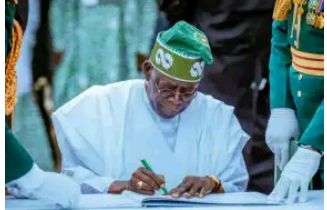In a landmark move to decentralise the nation’s power sector, Nigerian states now have the authority to oversee electricity generation, transmission, and distribution within their jurisdictions.

The shift follows the signing of the Electricity Amendment Bill into law by President Bola Tinubu in 2024.
The new legislation amends the Constitution, removing electricity from the Exclusive Legislative List and placing it on the Concurrent List, enabling states to take full charge of their power sectors.
The bill, titled Electricity Act (Amendment) Bill 2025, is expected to decentralize Nigeria’s power sector, encouraging investment and competition.
Speaking at the signing ceremony, Tinubu emphasized that the move would boost economic growth by allowing states to develop independent power projects tailored to their needs.
The Electricity Amendment Act marks a significant reform in Nigeria’s energy sector, handing over control from the federal government to individual states.
According to BBC:
“The Act gives states the authority to generate, transmit, and distribute power within their borders, shifting control from the federal government to the states. It allows states to license private investors to operate mini-grids and power plants within their jurisdiction.”
The decentralised model is expected to accelerate electrification in rural, peri-urban, and urban communities that have long remained underserved.
“This law marks a new era in Nigeria’s energy sector,” Tinubu stated. “States now have the constitutional authority to provide stable and efficient electricity to their residents, fostering industrialization and job creation.”
Governors across the country have welcomed the development, with Lagos, Rivers, and Kaduna already announcing plans to upgrade their power infrastructure. Experts believe the law will reduce reliance on the national grid, which has struggled with inefficiency for decades.
However, concerns remain about funding and technical capacity in some states. The federal government has pledged support through grants and partnerships with private investors to ensure smooth implementation.
With this law, Nigeria joins other federal nations where subnational governments manage electricity, raising hopes for improved power supply nationwide.






